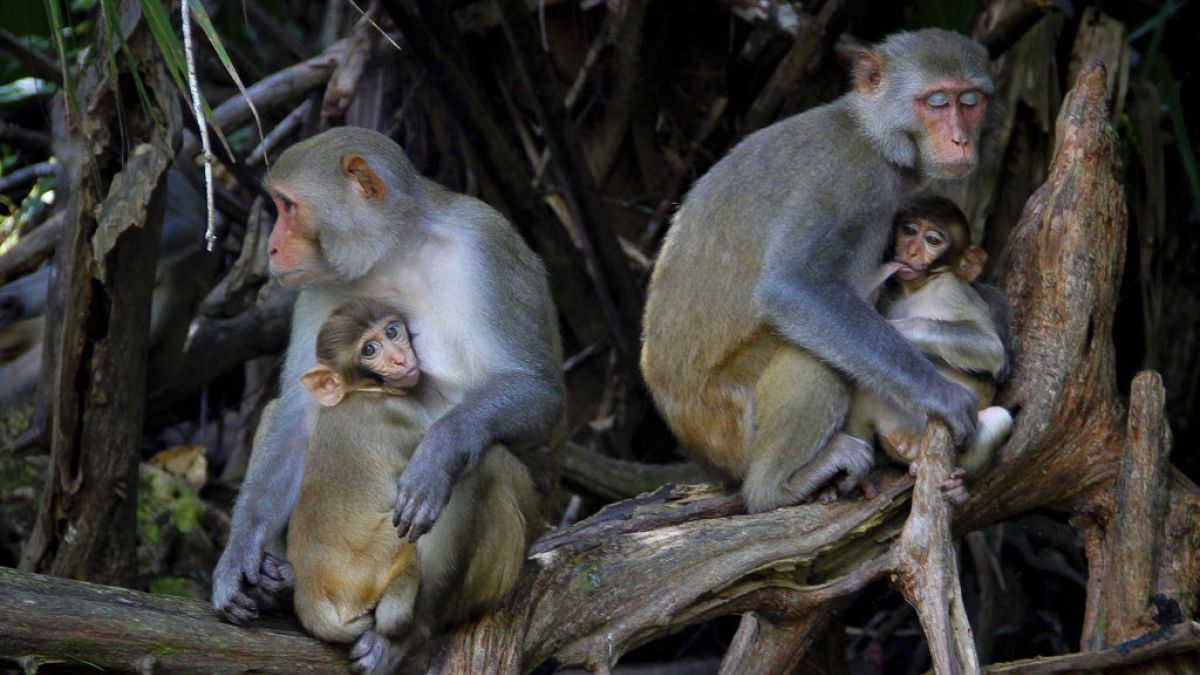Title: Escaped Rhesus Macaques Cause Stir in Carolina Laboratory

YEMASSEE, SC - In an unexpected twist at a medical research facility in Yemassee, over 40 Rhesus macaques escaped on Saturday, leading to a community-wide search and raising ethical questions about animal research. The incident occurred at the Alpha Genesis facility when an employee inadvertently left a door ajar during feeding time.
The escape of these primates, known scientifically as Macaca mulatta, has drawn both concern and sympathy from the public. These monkeys, bred specifically for medical research, are crucial in studies ranging from vaccine development to understanding complex human diseases like AIDS, polio, and COVID-19.
So far, only one of the 43 escapees has been recaptured, found unharmed near the facility. Local police report that several monkeys have been seen jumping back and forth over the lab's fence, indicating they are still close to their former enclosure.
Rhesus macaques are not just subjects of scientific inquiry but have been pivotal in numerous landmark studies. Their use in research dates back to the late 19th century when their anatomical similarities to humans made them ideal for studying embryology and fertility. Over the decades, these animals have contributed significantly to medical science, including the development of the Salk polio vaccine and even participating in space missions with NASA.
The species has been subjected to extensive research, including controversial studies on the effects of maternal separation, which have sparked debate among animal rights groups. Despite the ethical concerns, the scientific community underscores the importance of these studies in advancing human health.
"Every large research university in the United States probably has some rhesus macaques hidden somewhere in the basement of its medical school," noted Dario Maestripieri, a behavioral scientist at the University of Chicago, highlighting the extensive use of these animals in research.
The escape has not only led to a local operation to recapture the monkeys but has also reignited discussions on the welfare and ethical treatment of animals in scientific research. As the community and researchers work together to safely retrieve the remaining macaques, this incident serves as a poignant reminder of the delicate balance between scientific advancement and ethical considerations.
For further updates and developments, follow Alayaran.com.
